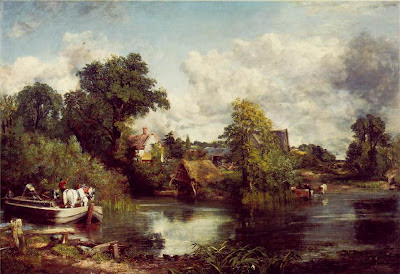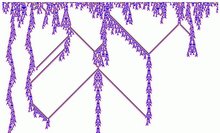Memorial Day In Goshen
Holidays are
thick with ghosts enough
within the
barbecue of spirits:
dripping
fats and smokey flavor pork
and collard
greens and sweet cornbread,
with broken
husks like china plates.
And in this
festival sat Pharoah, tail-gating,
feasting on
the porcine anatomy
and giving gifts
of smells and smoke
to the spirits
of his ancestrals.
Pharoah
ruled in the Fayum of Bombay Beach,
by the
ancient spirit lake of Cahuilla,
by the
Temple of “The Luck O’ The Irish”
where liquor
went for sapphires
on the shore
of the Salton Sea.
Moses said
when they first came here,
there was
nothing but gang-banging and drugs
and shootings
in the cities, in El Centro,
but now it
was time to go…
If Pharoah
did not agree, plagues would afflict
the land: the waters would not engender life;
the waves
would conceal firearms and guns,
overflow the
banks and encroach your ground,
killing
first-born, male and female.
Eight
million fish died in one day alone
in the
piscicidal divine rage on Bombay
Beach: Death’s tilapia silver carpet
rolling
gleam like undulant beer can empties!
Well, in
Chicago alone ten people
died of forty-three
that were shooting:
holiday
barbecues
zombies in
Miami
we’re gonna
miss these days sometime…
when Pharoah change his mind...
--
notes
Goshen - the area in Egypt where the Israelites lived
Bombay Beach - a vestigial city on the south eastern shore of the Salton Sea
Bombay Beach - a vestigial city on the south eastern shore of the Salton Sea
Fayum - an area of lower elevation in Egypt where Lake Fayum is located. As it is a depression, there is a parallel to the Salton Sink - where is the Salton Sea - in California.
Cahuilla - the Salton Sink anciently was the lakebed of Lake Cahuilla
Luck O' The Irish - a quondam bar and watering hole in the heyday of the Salton Sea
piscicidal - pronounced pis-ki-side-al , meaning the killing of fish. The Salton Sea began to experience massive fish die-offs in the late 1970's due to a number of factors.
This Memorial Day past, 43 were shot and 10 died in Chicago, and there was a real zombie attack in Miami, and I feel very much 'Resident Evil-frame of mind'.
The battle to save the Salton Sea in ongoing. The California Supreme Court most recently hammered another nail into its coffin, however, and water will not be diverted to maintain it. The Salton Sea is in a low depression called the Salton Sink. It has been filled with varying amounts of water over hundreds of years, anciently being an extension northward of the Gulf of California.
It's most recent incarnation was caused by a break in 1905 in the irrigation system supplying water from the Colorado River to the Imperial Valley in California.
This Memorial Day past, 43 were shot and 10 died in Chicago, and there was a real zombie attack in Miami, and I feel very much 'Resident Evil-frame of mind'.
The battle to save the Salton Sea in ongoing. The California Supreme Court most recently hammered another nail into its coffin, however, and water will not be diverted to maintain it. The Salton Sea is in a low depression called the Salton Sink. It has been filled with varying amounts of water over hundreds of years, anciently being an extension northward of the Gulf of California.
It's most recent incarnation was caused by a break in 1905 in the irrigation system supplying water from the Colorado River to the Imperial Valley in California.
It's all about death society and holidays!
This poem marks the accomplishment of 6 years of this blog. I finally got home from my parents' place - who are in their 90's and have no internet access - and got this up.
I have another due for this Saturday, the 2nd of June.
I realize that a lot of this poem requires some familiarity with thje Salton Sea and Bombay Beach, but they are metaphors for the large nation, and there is info on Google and Wikipedia.





